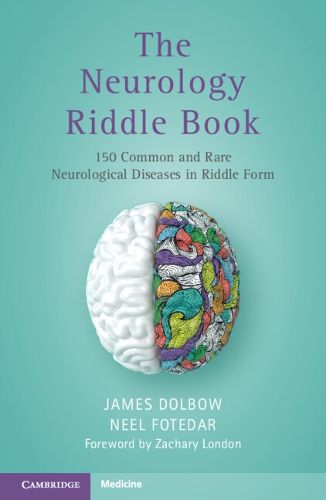Readings Newsletter
Become a Readings Member to make your shopping experience even easier.
Sign in or sign up for free!
You’re not far away from qualifying for FREE standard shipping within Australia
You’ve qualified for FREE standard shipping within Australia
The cart is loading…






If you love neurology, chances are that you also love a good puzzle. Providing a fun and refreshing alternative method of learning and reviewing neurological syndromes, conditions and diseases, this engaging book is perfect for those who love both neurology and riddles. 150 four-line riddles describe common neurodegenerative diseases and movement disorders as well as rare but commonly board-tested stroke syndromes, seizure disorders and infectious diseases. Each riddle contains cryptic clues such as patient demographic, clinical presentation and underlying pathophysiology for each condition and there are hints in case you get stuck. On the following page you will find the answer to the riddle along with a complete description of the condition, including the history of the disease, pathophysiology, clinical presentation, diagnostics, treatment and prognosis to aid learning. For even more challenging neuroscience puzzles, consider the Neuroanatomy Riddle Book, which includes riddles about clinically-relevant neuroanatomical structures.
$9.00 standard shipping within Australia
FREE standard shipping within Australia for orders over $100.00
Express & International shipping calculated at checkout
If you love neurology, chances are that you also love a good puzzle. Providing a fun and refreshing alternative method of learning and reviewing neurological syndromes, conditions and diseases, this engaging book is perfect for those who love both neurology and riddles. 150 four-line riddles describe common neurodegenerative diseases and movement disorders as well as rare but commonly board-tested stroke syndromes, seizure disorders and infectious diseases. Each riddle contains cryptic clues such as patient demographic, clinical presentation and underlying pathophysiology for each condition and there are hints in case you get stuck. On the following page you will find the answer to the riddle along with a complete description of the condition, including the history of the disease, pathophysiology, clinical presentation, diagnostics, treatment and prognosis to aid learning. For even more challenging neuroscience puzzles, consider the Neuroanatomy Riddle Book, which includes riddles about clinically-relevant neuroanatomical structures.